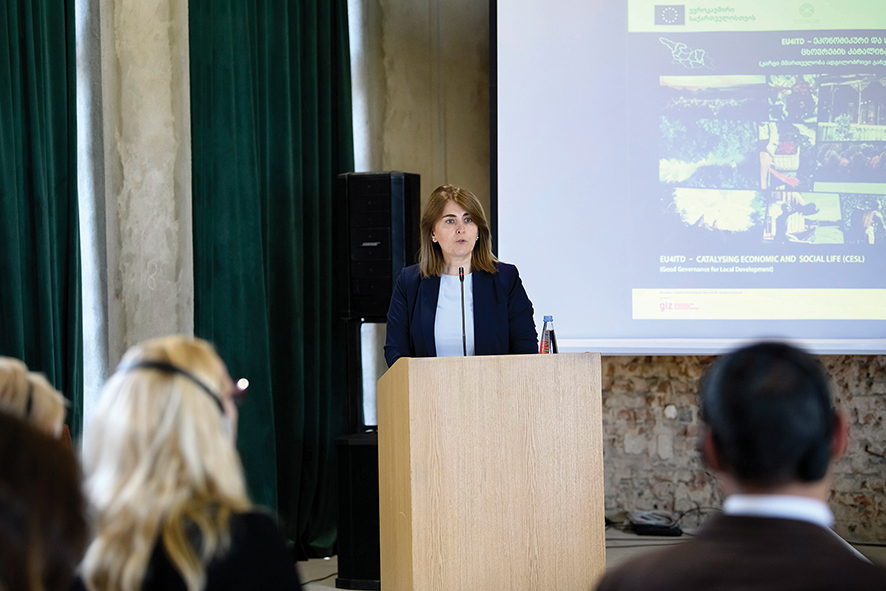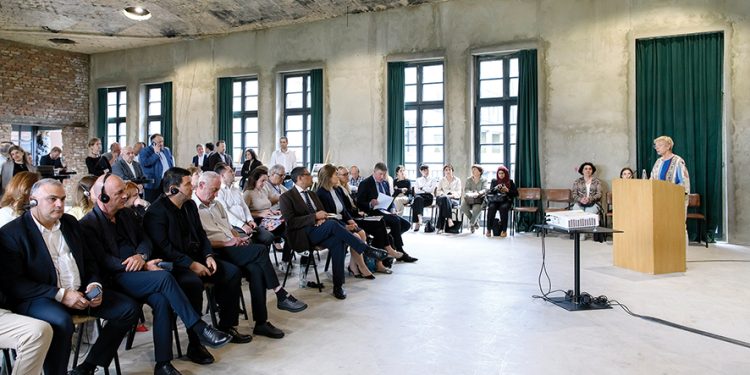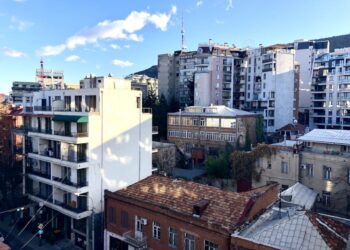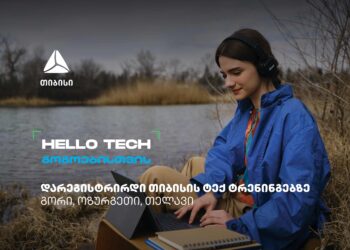With the support of the EU, within the “EU4ITD – Catalyzing of Economic and Social Life” project, the presentation of the selected municipal-led investment projects for financing was held by Gesellschaft fur Internationale Zusammenarbeit (GIZ) with the patronage of the Ministry of Regional Development and Infrastructure of Georgia (MRDI).
Mzia Giorgobiani, Deputy Minister of MRDI; Nikolas Cendrowicz, Head of Cooperation at the European Union Delegation in Tbilisi; Lidija Christmann, Head of Development Cooperation South Caucasus at the German embassy; Sandra Schenke, GIZ Country Director, and Howard Harding, CESL Team Leader delivered the welcome speech and opened the event.
The event’s primary aim was to give space to mayors from 14 municipalities to present the investments selected for financing under the CESL project. Examples include developing a southern entrance to Kolkheti National Park in Lanchkhuti, establishing a wine laboratory in Baghdati, and rehabilitating the local museum in Dedoplistskaro. In addition, goods produced by CESL private sector beneficiaries was presented.
The event brought organizations, primarily municipalities from four focal Georgian regions (Guria, Imereti, Kakheti, Racha-Lechkhumi and Kvemo Svaneti), together with state bodies, donors, and their implementing organizations and associations, including CSOs, as well as MRDI, the EU Delegation and the German embassy; up to 100 participants attended the event.

With EUR 6.5 million in funding from the European Union and EUR 1 million from the German Federal Ministry for Economic Cooperation and Development, GIZ implements the four year EU4ITD “Catalyzing Economic and Social Life” program to identify untapped economic and social potential in its focal regions- Guria, Imereti, Kakheti and Racha-Lechkhumi/Kvemo Svaneti, and supply investment financing so that such potential is realized. The project aims to “catalyze” existing but untapped potential in the four focal regions to achieve positive economic and social outcomes. Life opportunities for local inhabitants should therefore be improved, thus contributing to more balanced territorial development across Georgia, including a reduction in migration from the target regions and an increase in people relocating there. The project addresses municipalities and the private sector and runs for almost 4 years (until September 2025). Initiatives financed (e.g. infrastructure, equipment) should bring together local self-government, the private sector and civil society.
Please find Information about the program at the following link: https://eu4georgia.eu/ka/projects/eu-project-page/?id=1729














